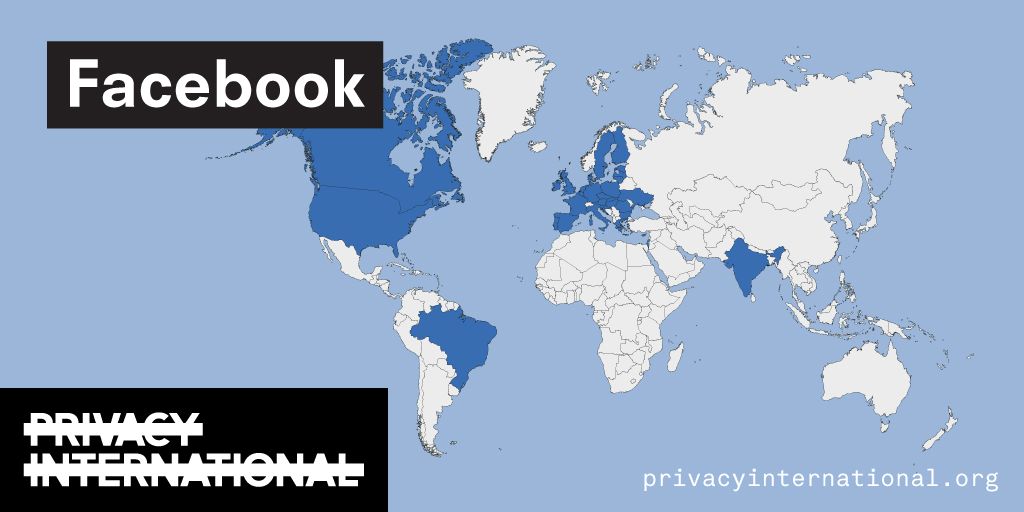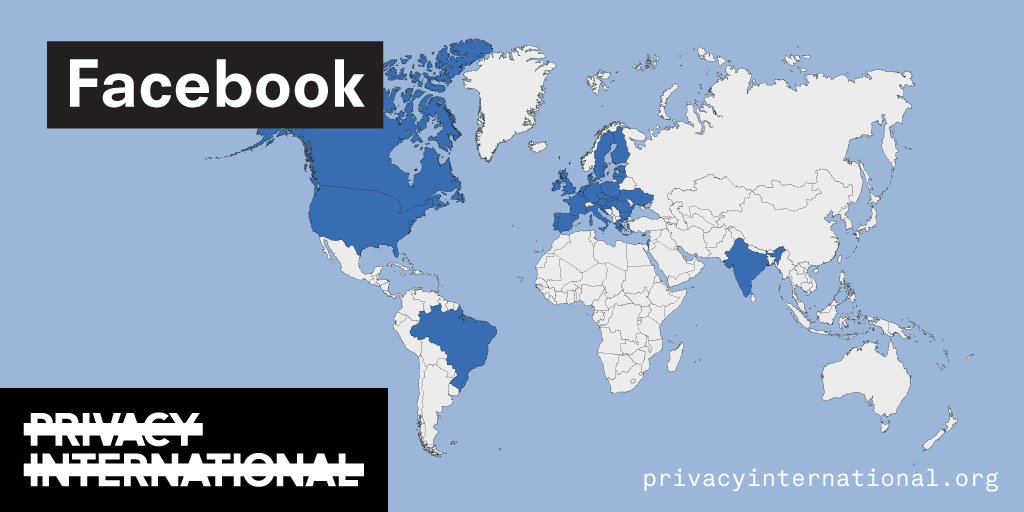Advanced Search
Content Type: Long Read
Photo by Cade Roberts on Unsplash
For those of you who don't spend the most productive part of your day scanning the news for developments about data and competition, here's what has been going on in the UK since summer 2019.
Basically, the UK competition authority started an investigation into online platforms and digital advertising last summer, and issued their preliminary findings in December 2019, concluding that Facebook and Google are very powerful in the search engine and social media…
Content Type: Advocacy
For a long but fun analysis of the current competition and data state of play in the UK, click here.
Background
PI broadly welcomes the CMA’s interim findings, many of which correspond with issues of longstanding concern to PI and with the points raised in our response to the CMA’s Statement of Scope.
This includes the indication that Google and Facebook have a dominant or strategic position in major elements of the digital advertising market which can -at least, partially- be attributed to the…
Content Type: Case Study
Since August 2017 742,000 Rohingya people - including children - fled across the Myanmar border to Bangladesh, escaping what the UN labelled a “textbook example of ethnic cleansing”.
In this context of ethnoreligious violence, Facebook has been a central figure. For many in Myanmar “Facebook is the internet” - as of January 2018 around 19 million people in Myanmar were facebook users, this is roughly equal to the number of internet users in the country.
A New York Times report revealed that…
Content Type: Examples
Facebook's scientists are analysing location data about compliance with social distancing recommendations in various countries using information from a private vault of location information its apps have collected. The analysis shows that only "very modest" changes in habits in the US, France, and the UK, and much more substantial change in Spain and Italy between mid-February and mid-March. Other companies such as Google and Apple, may also be able to contribute insights into public behaviour…
Content Type: Examples
WhatsApp is being flooded with fake cures, false information about how the illness is transmitted, and coronavirus conspiracy theories, and has become a vector for spreading panic and misinformation around the world, particularly in countries such as Nigeria, Singapore, Brazil, Pakistan, and Ireland. In Botswana, the government has begged the population to be wary of what they're reading on the app. The fact that WhatsApp messages are encrypted, readable only by sender and recipients makes…
Content Type: Examples
A task force at the Italian Ministry of Innovation, in collaboration with the University of Pavia to leverage big data technologies to deal with COVID-19, after the WHO advised governments that lockdowns alone are not enough, and that testing, isolation, and contact tracing are crucial. The effort is beginning with anonymised data provided by Facebook; Italian telcos including Tim, Vodafone, Wind Tre, and FastWeb, via their Asstel trade association, have also offered anonymous datasets…
Content Type: Examples
A task force at the Italian Ministry of Innovation, in collaboration with the University of Pavia to leverage big data technologies to deal with COVID-19, after the WHO advised governments that lockdowns alone are not enough, and that testing, isolation, and contact tracing are crucial. The effort is beginning with anonymised data provided by Facebook; Italian telcos including Tim, Vodafone, Wind Tre, and FastWeb, via their Asstel trade association, have also offered anonymous datasets…
Content Type: Examples
In a rare departure from personalisation, Facebook announced that it had begun inserting a box into its news feed directing users to the Centers for Disease Control’s page about COVID-19, potentially driving many millions of users to reliable information from an authoritative source. Facebook also granted unlimited free ad credits to the World Health Organization to promote accurate information about the crisis. The company also promised to remove “false claims and conspiracy theories that have…
Content Type: Examples
Facebook announced on its blog that it was providing researchers at Harvard University’s School of Public Health and National Tsing Hua University in Taiwan with aggregated and anonymised mobility data and high resolution population density maps to help inform their forecasting models for the spread of the virus as part of the company's broader "Data for Good program". Facebook said it might expand these efforts to a broader set of partners in the coming weeks. They are also helping partners…
Content Type: Examples
Facebook is providing researchers at Harvard University’s School of Public Health and National Tsing Hua University in Taiwan "aggregated and anonymized" mobility data and high resolution population density maps to help inform their forecasting models for the spread of the virus as part of our broader Data for Good program. Facebook may expand these efforts to a broader set of partners in the coming weeks. They are also helping partners understand how people are talking about the issue online…
Content Type: Long Read
In 2018, following the Cambridge Analytica scandal, Facebook announced the “Download Your Information” feature allowing users to download all the information that the company have on them since the creation of the account. All of it? It doesn’t seem so. Concerns were quickly raised when Facebook released the feature, that the information was inaccurate and incomplete.
Privacy International recently tested the feature to download all ‘Ads and Business’ related information (You can accessed it…
Content Type: News & Analysis
The latest news of Twitter “inadvertently” sharing email addresses or phone numbers provided for safety or security purposes (for example, two-factor authentication) for advertising purposes is extremely concerning for several reasons.
First of all, it is not the first time for Twitter's used people's data in ways they wouldn't expect or that ignores their choices: in August, the company disclosed that it may have shared data on users with advertising partners, even if they had opted out from…
Content Type: News & Analysis
Photo by Daniel Jensen on Unsplash
Everyone is talking about Facebook's end-to-end encryption plans and the US, UK and Australian government's response. Feeling lost? Here is what you need to know.
What's Facebook trying to do?
First let's be clear: Facebook has many faults when it comes to privacy. It's also suffered a number of security failures recently. See here for instance.
In response to their successive failures to protect your privacy, Facebook announced in their 'pivot to privacy…
Content Type: Long Read
An analysis of what Facebook, Google, and Twitter have done to provide users with political ad transparency as of September 2019. Our full analysis is linked below.
Recently the role of social media and search platforms in political campaigning and elections has come under scrutiny. Concerns range from the spread of disinformation, to profiling of users without their knowledge, to micro-targeting of users with tailored messages, to interference by foreign entities, and more. Significant…
Content Type: News & Analysis
Photo by Jake Hills on UnsplashOur research has shown how some apps like Maya by Plackal Tech and MIA by Mobbap Development Limited were – at the time of the research – sharing your most intimate data about your sexual life and medical history with Facebook.Other apps like Mi Calendario, Ovulation Calculator by Pinkbird and Linchpin Health were letting Facebook know every time you open the app.We think companies like theses should do better and we are pleased to see some of them have already…
Content Type: Long Read
In December 2018, Privacy international exposed the dubious practices of some of the most popular apps in the world.Out of the 36 apps we tested, we found that 61% automatically transfer data to Facebook the moment a user opens the app. This happens whether the user has a Facebook account or not, and whether they are logged into Facebook or not. We also found that some of those apps routinely send Facebook incredibly detailed and sometimes sensitive personal data. Again, it didn’t matter if…
Content Type: Examples
In 2018, to prove how easily soldiers' real-world actions can be manipulated via social media, researchers at NATO's Strategic Communications Center of Excellence (StratCom) conducted a red-team exercise in which they "catfished" members of the armed forces. Using information collected from Facebook profiles and people search websites, the researchers created targeted advertising to draw soldiers to phony Facebook pages mimicking those service members use to connect with each other. In the…
Content Type: Examples
In December 2018, Facebook provided an update on the civil rights audit it asked civil rights leader Laura Murphy to undertake in May. Based on advice Murphy culled from 90 civil society organisations, Facebook said it had expanded its policy prohibiting voter suppression, updated its policy to ban misrepresentation about how to vote, begun sending information about voting to third-party fact checkers for review, and was ramping up efforts to encourage voter registration and engagement.
https…
Content Type: Explainer
Recently the role of social media and search platforms in political campaigning and elections has come under scrutiny. Concerns range from the spread of disinformation, to profiling of users without their knowledge, to micro-targeting of users with tailored messages, to interference by foreign entities, and more. Significant attention has been paid to the transparency of political ads - what are companies doing to provide their users globally with meaningful transparency into how they…
Content Type: News & Analysis
Image: The Great Hack publicity still, courtesy of Netflix.
This is a review of the documentary 'The Great Hack' originally published on IMDb.
This documentary is a fascinating account of The Facebook/Cambridge Analytica data scandal.
In early 2018, Cambridge Analytica became a household name. The company had exploited the personal data of millions of Facebook users, without their knowledge or consent, and used it for political propaganda.
At a running time of almost two hours, The Great…
Content Type: Examples
Le Monde exposed anti-IVG (anti-abortion) advertising on Facebook as part of a borader campaign led by anti-abortion website IVG.net. The advertisement relied on stock photos and fake testimonies posted in public Facebook groups and promoted to young women. Most of the posts attempt to promote the idea that abortion leads to mental health issues, a fact that has been proved to be falacious.
https://www.lemonde.fr/les-decodeurs/article/2018/07/11/les-anti-ivg-ciblent-les-jeunes-femmes-grace-aux…
Content Type: Long Read
Image courtesy of Michael Coghlan
The long-speculated Facebook cryptocurrency is finally here! Libra!
Libra Association, an entity co-founded by Facebook, has announced the creation of a new cryptocurrency, Libra, "a simple global currency and financial infrastructure that empowers billions of people".
The white paper that outlines the rationale for the new currency makes a number of heady statements, some which anyone who cares about rights should commend -- and some which should…
Content Type: Long Read
When you go abroad, you expect to show your passport right? But what if immigration authorities wanted access to your Facebook, Instagram and Twitter accounts before they let you enter a country? What if they wanted to vet you based on your updates, photos, likes, retweets and even your DMs?We think social media companies, who make literally billions of dollars out of you, and wield massive power and influence, should challenge governments on YOUR behalf. They should be protecting their users…
Content Type: News & Analysis
Privacy International has joined a global coalition of privacy campaigners, tech companies, and technology experts to respond to proposals by British intelligence chiefs aimed at allowing them access to encrypted messaging apps such as WhatsApp or Signal.
If implemented, the proposals would allow government authorities to force messaging platforms to silently add a law enforcement participant to a group chat or call.
Such a capability poses serious threats to…
Content Type: Examples
As a part of Facebook’s efforts to curb disinformation and misinformation on its platform, the company introduced new rules over how political content is marked. This has resulted in content that is educational, news articles, and otherwise seemingly non-political being marked incorrectly and taken down. In Hungary (and Ukraine) this has caused frustration from newspapers, especially due to difference between how Western European papers are treated differently from others. The Guardian reports…
Content Type: Examples
Political ads on Facebook are meant to be marked with a disclaimer that says who paid for the ad, as well as be archived into the platform’s ad library, where users are able to see more information about how an ad was targeted. It’s important to note that the ‘who paid for the ad’ requirement is loose, meaning that a generic organisation name could be used, instead of a name that ties the ad to an interest group, for example. These modest requirements of ads transparency came in the wake of…
Content Type: Examples
Volunteers for Presidential candidate Volodymyr Zelenskiy were tasked with pouring over social media sites to search for disinformation and combat bot armies that spread negative comments about the candidate. Facebook has been slow to take down 'fake news' and so the volunteers search social media sites for such content, and then report it as violating Facebook's terms of service. While Facebook is Ukraine's most popular social media site, Radio Free Europe/Radio Liberty reports that there…
Content Type: Examples
Facebook's efforts to remove disinformation in the wake of the 2019 Ukrainian Presidential election have so far failed. Politico reports that "Among the Facebook pages that spread spurious claims during the election was one with more than 100,000 followers that ran a video claiming (the Presidential candidate) Zelenskiy will allow Russia to take over the country with a violent military operation. Others portrayed him as a drug addict, or Poroshenko (the other Presidential candidate) as an…
Content Type: Examples
In August 2018, Apple forced Facebook to remove its Onava VPN from the App Store because the Facebook had been using it to harvest data across multiple apps and track user activity. In January 2019, a TechCrunch investigation revealed that in a separate part of the same programme Facebook had been paying users aged 13 to 35 to download a "Facebook Research" VPN and give it root access to their devices to enable it to collect data on their usage habits. The programmed, known as "Project Atlas",…



















